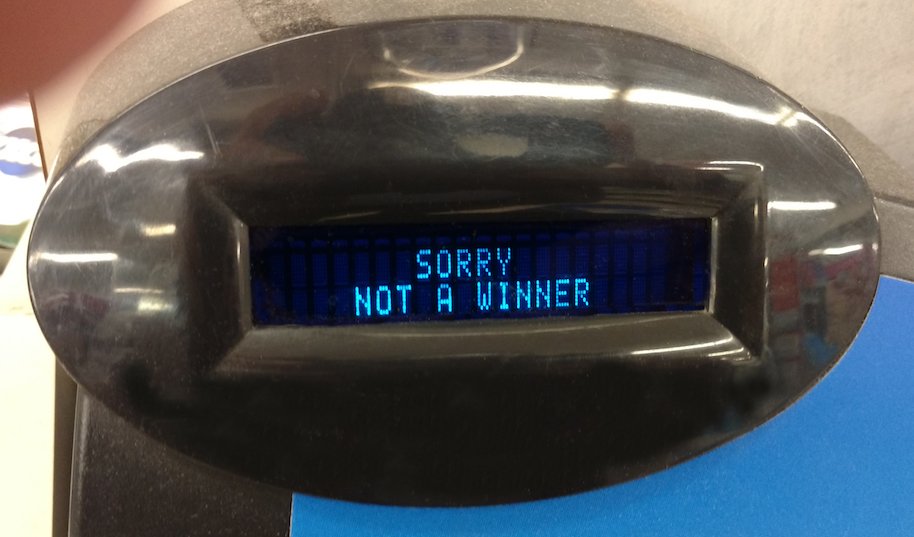Lottery loser. Photo: Ross Durant Photography (Getty)
It was a Christmas miracle, as thousands of people in South Carolina who purchased lottery tickets over a two-hour period on December 25 were thrilled they turned out to be $500 winners.
But the South Carolina Education Lottery called it a “coding error.” In fact, they are now refusing to pay out the majority of the almost $35 million worth of winning tickets. In other words, pretty much the exact opposite of a miracle.

According to The New York Times, the name of the game was “Holiday Cash Add-a-Play,” similar to tick-tack-toe in which players were looking to get three Christmas trees in a row horizontally, vertically or diagonally. For two hours, thousands of those tickets were printed with a Christmas tree in all nine boxes, meaning players were holding $500 winners. Some players were lucky and immediately cashed in their tickets, something the SCEL says cost them around $1.7 million. They said it wasn’t luck that propelled those “loyal players” to glory, but a programming error courtesy of their former vendor Intralot.
“Regrettably, these errors by the former vendor led loyal players to mistakenly believe that they held winning tickets,” the SCEL said in a statement. “While SCEL is mindful of the magnitude of this decision on its players, any other decision would not comply with the law.”
Meanwhile, in Canada… Teen Buys First Lottery Ticket On 18th Birthday, Wins $1K A Week For Life
The law they are referencing states “prizes arising from a ticket produced or issued in error must not be paid.” Not surprisingly, those “loyal players” don’t agree, and two lawsuits in different South Carolina counties have already been filed on their behalf.
Odds are it’ll take a while for this one to play out. In the meantime, it’s still a toss-up as to which is a bigger kick in the dick: being told your $500 winning ticket is worthless or coming to the sad realization that you’re spending Christmas Day playing the lottery by yourself instead of enjoying it with a loving family.








